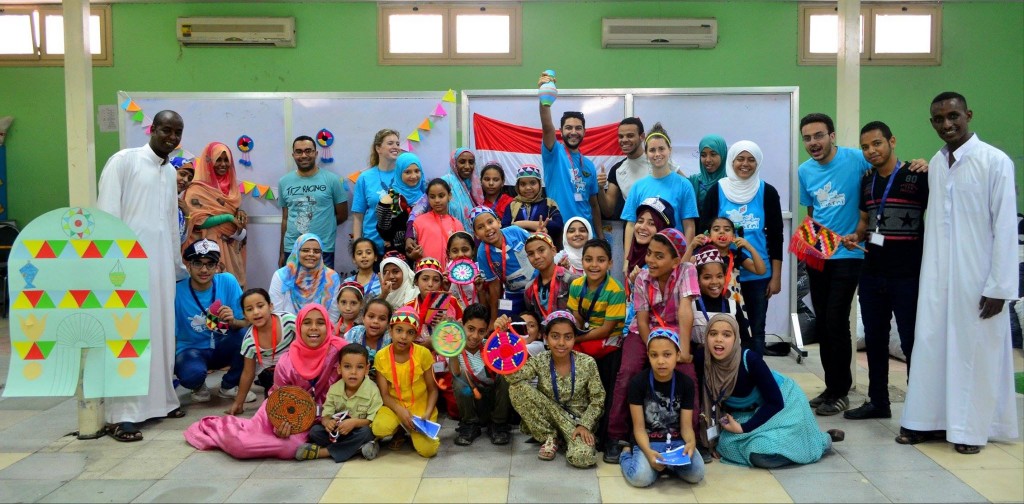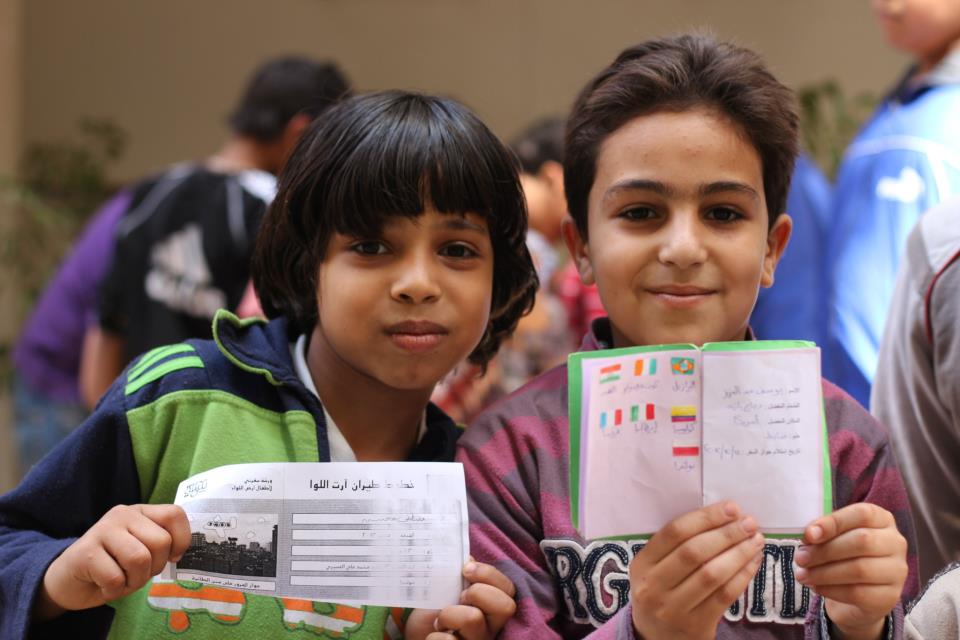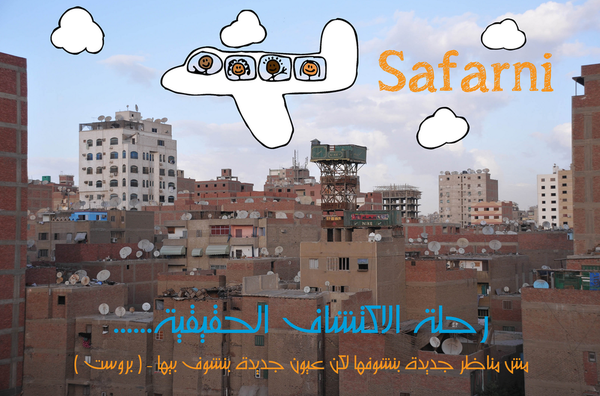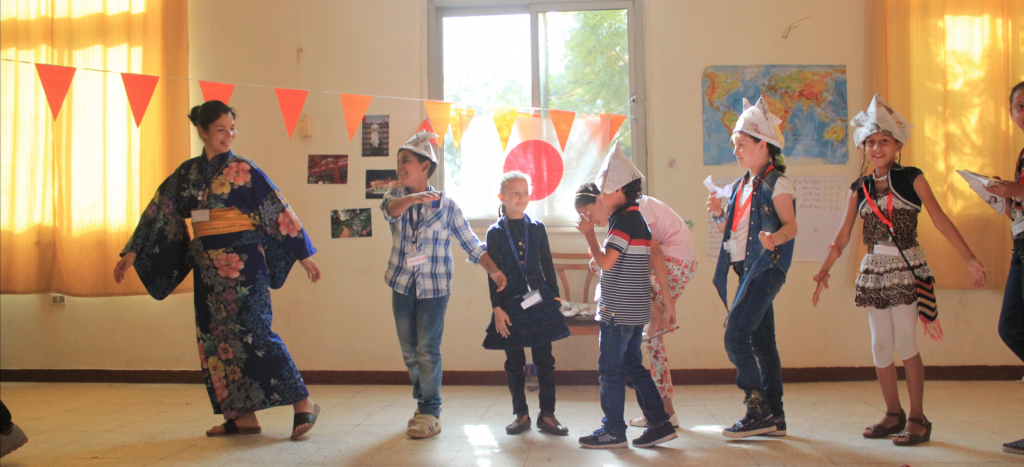“The world is a book, and those who do not travel read only one page.” – Saint Augustine
Who would disagree with the quote above?
Nothing expands the mind, fosters understanding of our fellow humans or stretches the soul’s legs like travel.
While many are privileged enough to have access to foreign cultures through travel, countless others are not.
French-American documentary filmmaker Raphaelle Ayach hopes to compensate for that in Egypt by bringing the experience of traveling to children who otherwise may not be able to do so.
In a country that has one of the world’s highest illiteracy rates, a “highly deficit” education system and more than 16.7 million children living in poverty, Ayach has launched Safarni, a non-profit that allows Egyptian kids to experience the benefits of travel without leaving their backyard.
“One of the greatest ways to get exposure to diversity is to immerse yourself in it through travel. But unfortunately, most people do not have many opportunities for travel,” said Ayach. “ All people should be able to live in a world where they feel safe and loved for who they are, not feared or judged for what people think they are.”
Ayach personally noticed the prevalence of racism during her time in Spain, where she first started learning Arabic. Her teacher was an Egyptian man who experienced significant racism and prejudice – an eye-opening realization for Ayach. She eventually chose Egypt to improve her dialect, immerse herself in the Arab world and continue her interest in filmmaking. Whilst there, she realized the immediate need to bridge cultural gaps and improve inter-cultural relations and understanding and decided to create a platform to do just that.
The Safarni workshop (Arabic for “Take me traveling”) is held twice a week in different parts of Egypt including Cairo and Ismalia. Complete with handmade passports and boarding passes, the 6-8 day workshop walks a small group of children aged 8-16 through the travel experience, from boarding an imaginary plane in one room to reaching their destination in another and back on to the ‘plane’ that takes them home to Cairo.
During their time in a particular country, they get to see photos of what the country looks like, meet locals from the culture, and draw similarities and differences between Egypt and the country they visit with the help of workshop facilitators.
“It looks exactly like Egypt!” one child said during the workshop on India.
They are also taught common phrases and words to communicate with their new guides who show them their local sites, games, and even let them taste their food.
On the first day of Safarni, none of the kids could locate Egypt on a map or form any references to any other countries. Now, these kids can ask how you’re doing in Italian, tell you why they love Brazilian food, play games from Côte d’Ivoire and rattle off the countries they visited that have female presidents.
The children also have a “graduation day” at the end of the program where they show their family and friends what they learned during their travels.
To ensure the kids get an open-minded experience, Safarni organizers discourage the use of words like “bad,” “3eib” (Shameful/Unacceptable) or “we7esh” (Bad) and are instead encouraged to use more positive adjectives such as “gedid” (New) or “mokhtalef” (Different) to describe differences.
“Children naturally have very open minds, and are creative and trusting,” said Ayach. “It’s actually much easier to introduce them to completely different cultures than it might be to work with their parents…Any real change will have to pass through the next generation.”

Although the program has received support from the community, critics have questioned the method of teaching at the workshop, arguing that they aren’t learning much and are just there to have fun. Ayach, however, believes that “the more we can feel our learning, rather than memorizing it, the more it becomes a part of us.”
“It’s like the quote: ‘You’ll forget what a person said or did, but you’ll never forget the way they made you feel,” said Ayach.
The Safarni experience is refreshingly new and promising approach to opening the minds of Egypt’s next generation, educating them about the world outside Egypt and equipping them with critical thinking skills. The initiative also includes workshops for the workplace, an intercultural mentor-mentee program for children called AnthroSafarni and other intercultural activities that allow children to continue connecting and learning.
As the world becomes increasingly globalized, it is becoming more crucial for people to experience other cultures beyond the “indirect, filtered information” seen in the media. According to Ayach, “nothing on earth can replace real, lived and felt human connections [that] belong to an individual that dares to venture and [is] free to draw their own conclusions.”
“We all have fears as humans, and they’re there to be trespassed and overcome,” said Ayach. “We need more intercultural initiatives, both in the places with limited educational opportunities, like Egypt, and in the West, where despite higher levels of education, people are still in dire need of more empathy and intercultural connection.”
“Our job is to out-grow those fears by deciding that we trust our own life experiences over what we’ve been told to believe. When it comes to diversity, that means encountering and authentically meeting those we always thought were different.”
The initiative is currently looking for monthly donors and investors.
Raphaelle Ayach has recently been elected to the Ashoka Fellowship Program. To find out more about Safarni, check out their website.





















Comments